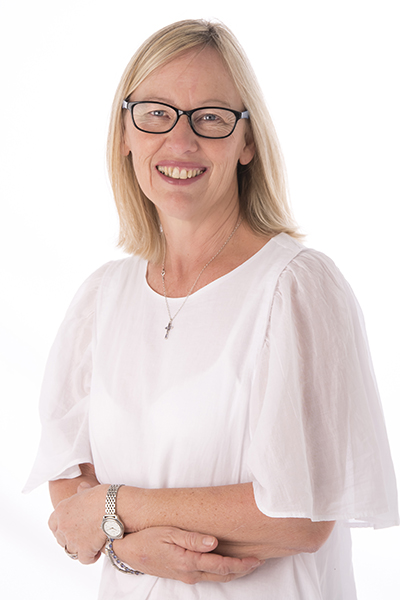Latest News Archive
Please select Category, Year, and then Month to display items
30 October 2018
|
Story Rulanzen Martin
|
Photo Peet van Aardt
 Some of the student writers who contributed to the anthology that tells their stories in Sesotho, isiXhosa, isiZulu, English and Afrikaans.
Some of the student writers who contributed to the anthology that tells their stories in Sesotho, isiXhosa, isiZulu, English and Afrikaans.
How do you transform the higher education curriculum? You involve the exact people the curriculum is intended for. The book, Initiative for Creative African Narratives (iCAN,) illustrates how decolonisation can be achieved through literature for students by students.
iCAN is an initiative by the Centre for Teaching and Learning (CTL) at the University of the Free State (UFS) to mentor students in creative and narrative writing. Under the mentorship of Dr Peet van Aardt, project coordinator, and Ace Moloi, author and UFS alumnus, iCAN Volume 1 was recently launched with 47 short stories written by UFS students.
“The project is a response from the centre for the ever-increasing need for decolonised curricula, steeped in the local cultural perspective of ubuntu,” said Dr Van Aardt.
“This book is an example for how decolonisation can be implemented,” said Prof Francois Stydrom, Senior Director of CTL. The overall aim of the iCAN project is to have the content that materialised from it to be included in the curriculum of first-year students at UFS in the near future.
Book provides multiple voices
Starting in May 2018, CTL presented a series of creative writing workshops on all three of the UFS campuses. “It’s a medium that allows a diverse range of students to express their views and develop their voices as writers,” said Prof Strydom.
It is a form of empowerment, to pass the baton to students to improve the UFS curriculum by writing and publishing their own stories, thereby contributing to larger bodies of knowledge through their lived experiences.
“I believe we as a university need to enable students so that they move away from just being users to becoming contributors to the curriculum,” Dr van Aardt concluded.
UFS Expert: Prof Felicity Burt investigates zoonotic and arboviruses
2017-12-13

Prof Felicity Burt recently received a B-rating from the
National Research
Foundation.
Photo: Sonia Small
Prof Felicity Burt is from the Division of Virology in the Faculty of Health Sciences at the University of the Free State (UFS), as well as the National Health Laboratory Services (NHLS). She currently holds an NRF-DST South African Research Chair in vector-borne and zoonotic diseases. Professor Burt and her research group investigate arboviruses and zoonotic viruses.
Prof Burt’s research primarily focuses on host immune responses to arboviral infections specifically characterising humoral and cellular immune responses in patients with infections such as Crimean-Congo haemorrhagic fever (CCHF) virus and Sindbis virus; epitope discovery for development of diagnostic tools; development of molecular and serological assays for surveillance purposes; virus discovery; and the development of vaccines.
Raising awareness of these viruses, defining associated diseases, and developing tools for surveillance programmes will contribute to understanding these pathogens as well as the public health implications.
Leads research group in papilloma viruses
Arboviruses cause outbreaks of disease in South Africa annually. Outbreaks are usually associated with heavy rainfall favouring the breeding of mosquitos, but these viruses also have the capacity to spread and become endemic in new areas where competent vectors are present.
In addition, she is leading a research group that investigates human papilloma viruses (HPV) associated with head and neck cancers and recurrent laryngeal papilloma.
The focus of this research group is to ascertain the genotypes of HPV causing these diseases, identification of novel biomarkers for early detection, and complete genome sequencing for molecular characterisation of HPV isolates.